Brazilian Tapioca
Oi Gente!
This post is sponsored by my awesome amigos over at Bob’s Red Mill! In this recipe, we’re using Tapioca Flour, aka Tapioca Starch, a KEY item in the Brazilian pantry. I simply can’t live without it! Thanks Bob’s Red Mill Família!!
So, let’s get started!
But first things first…
What is Brazilian Tapioca?
Brazilian Tapioca are these little tortilla-like flatbreads made with goma de mandioca, or “yuca gum”, which is tapioca starch that’s been hydrated with water. Brazilian Tapioca, which for obvious reasons us Brazilians just call tapioca hahah, is one of our most prized indigenous heritage dishes. They’re pure chewy yumminess, and can be savory or sweet. Usually topped with simple things like butter, cheese, coconut and condensed milk, or salty Brazilian dry beef. They are deliciosas!!!
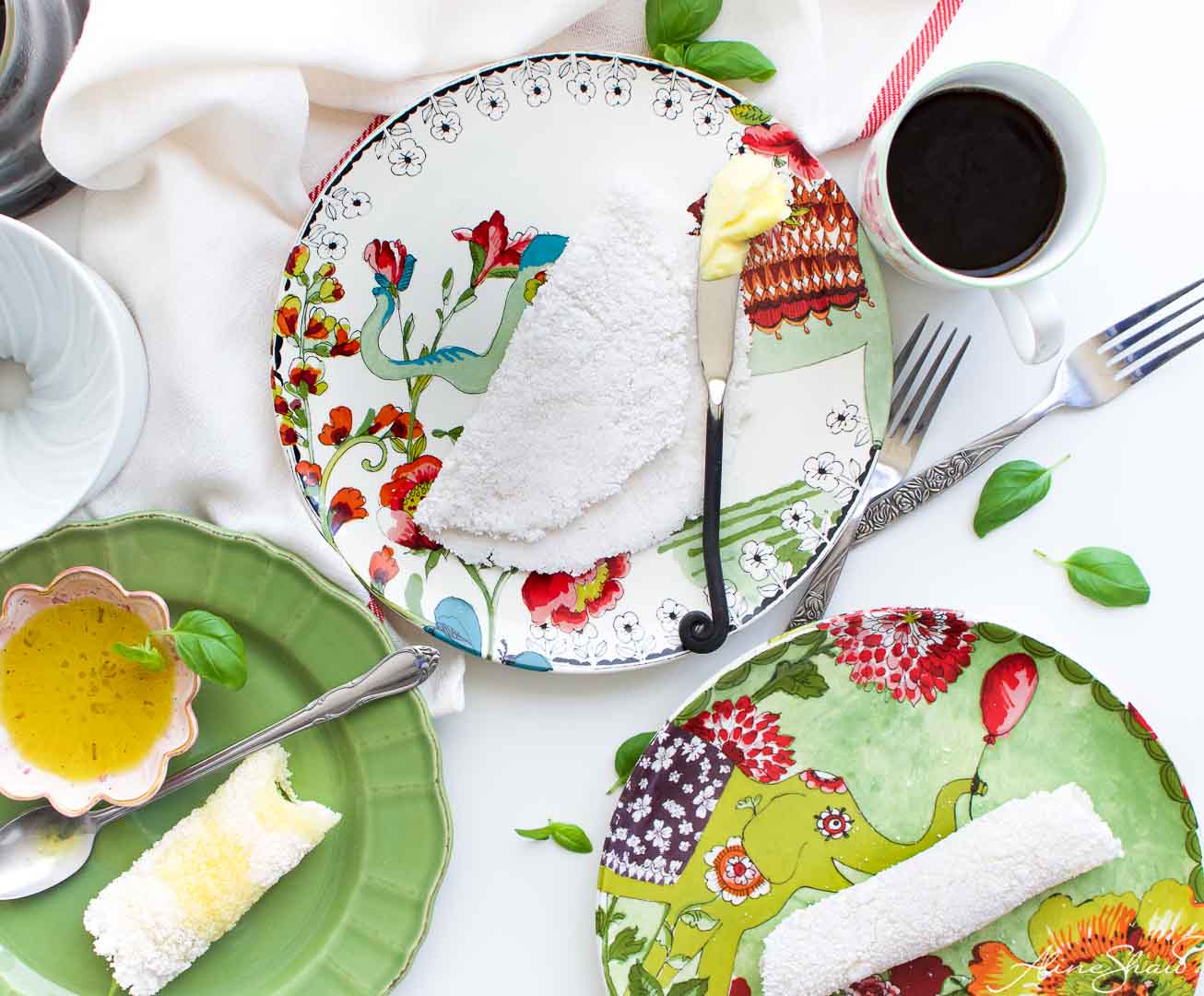
From a context point of view, you’ll hear a lot of people refer to Brazilian tapioca as crepes or pancakes. But, no. It’s more appropriate to compare them to flatbreads for a few reasons. First, there are a couple of etymological explanations for the indigenous word tapioca. One of them directly translates the fist part of the word tapi as pão, meaning bread.
Also, when Europeans first came in contact with the indigenous tapioca, hundreds of years ago, they described them as the “Brazilian bread.” Then, with time, when Portuguese settlers started to introduce the Brazilian tapioca to their diet, it was as a bread substitute. Fast forward to today, over 4 centuries later, Brazilian people still primarily consume tapiocas daily as a bread substitute. For breakfast or afternoon snacking, with butter and cheese, jams, cold meats, and pretty much anything you’d put on bread. The sky really is the limit here!
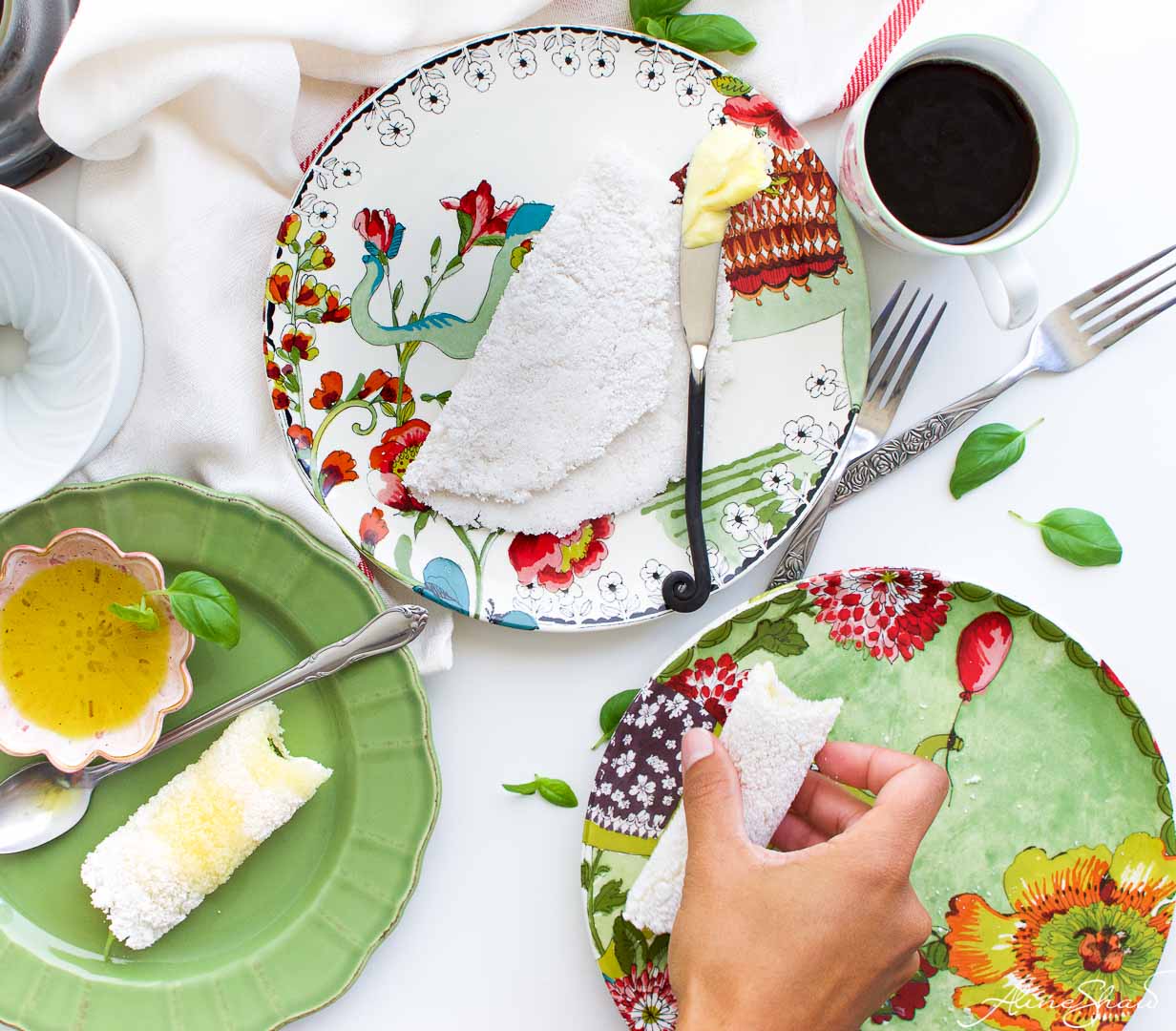
But, probably the most important reason why we shouldn’t call Brazilian tapioca crepe or pancake is a culinary one. Tapiocas aren’t made from an egg batter, like crepes and pancakes are. Crepioca, a dish I’ll be telling you all about soon, is. The biggest difference between a crepioca and crepe and pancake is, instead of flour, we make crepioca with yuca gum, the tapioca ingredient (get it, crepe-ioca!!!!??). I know… genius!
Tapioca in Brazil | Cultural Heritage Symbol
Tapioca is a traditional symbol and street food staple of North and Northeastern Brazilian cuisine. They’re so important that, in 2006 they officially became “immaterial and cultural heritage symbol” in the city of Olinda, Pernambuco. Seriously, how cool is this!!?
My brother lived in the northeastern state of Ceará for many years, where I spent many many summers. I used to love when he’d take me down to the street with the tapioqueiras (street vendors “tapioca ladies” who make and sell tapiocas). I just couldn’t live a single day without having some! My favorite has always been the one with coach cheese, butter, coconut and condensed milk – quite the mix, but I swear, its so good!
But, tapiocas aren’t just popular in the north. They became popular throughout Brazil because they’re naturally fat free, gluten free, and vegan! They’re also full of carbs that keep you full for long periods of time, so although they’re not necessarily full of nutrients, fibers or protein, they’re still considered a “diet” food.
But before we dive into the recipe, let’s answer one more question.
What is Tapioca Flour aka Tapioca Starch?
Tapioca starch is made from yuca root, you know, this root vegetable right here.
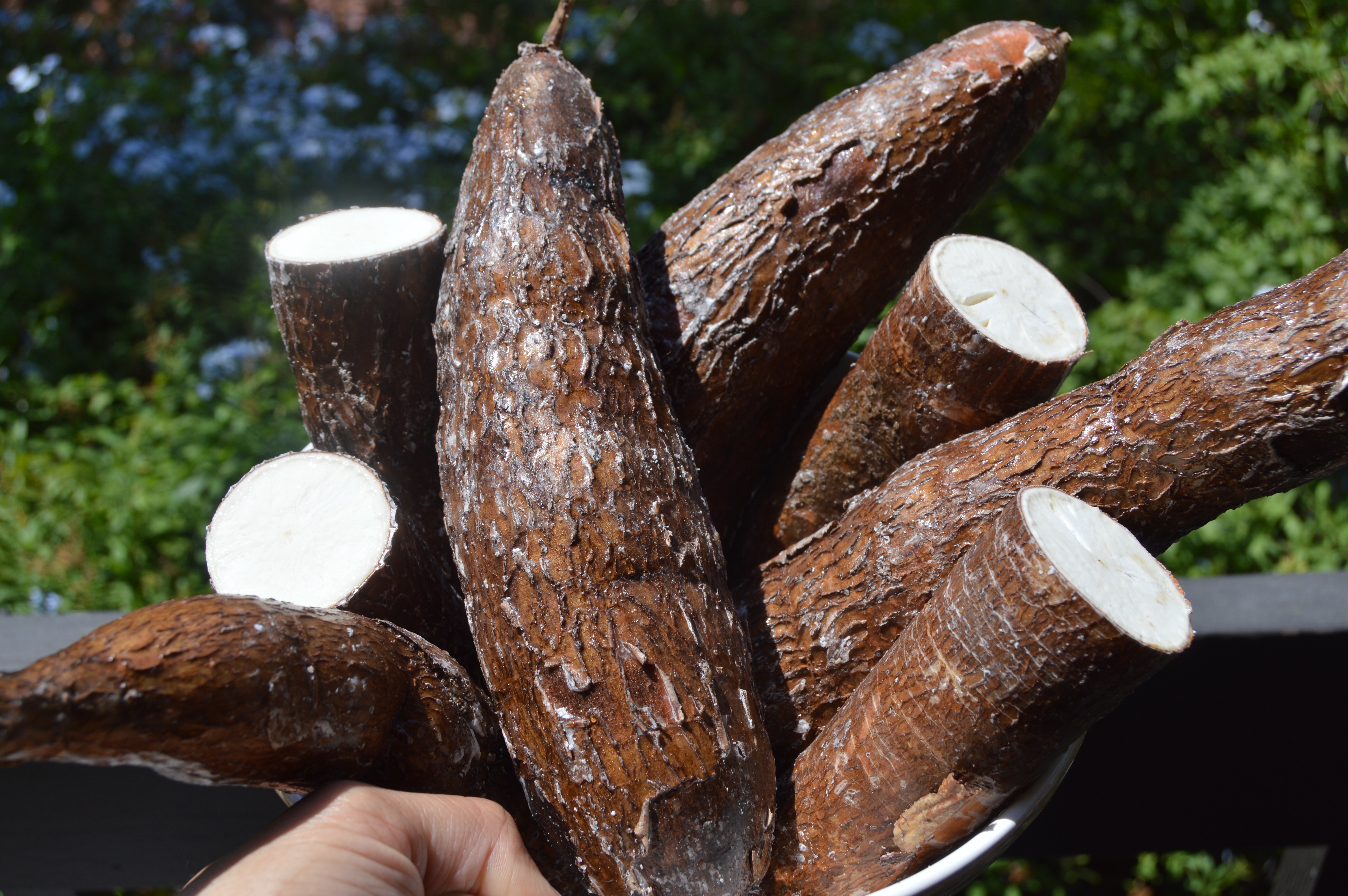
If you’re interested in knowing more about yuca, I wrote a series of 4 posts about yuca and how to work with it in all its forms. In this series, I explain the role yuca plays in Brazilian cuisine, the difference between its products, and a recipes for each.
But, to sum it up for ya, tapioca starch, aka tapioca flour, is a product of the milky liquid extracted from the yuca flesh, after it’s grated and pressed. This liquid is decanted, and the sediment left is the starch.
There are tons of delicious tapioca flour recipes, one popular one being the Pão de Queijo, Brazil’s famous cheese bread.
And I think that’s enough info for now!
Ready to see how to make Brazilian tapiocas!!?
Brazilian Tapioca Recipe
The first thing we need to do is make our yuca/tapioca gum.
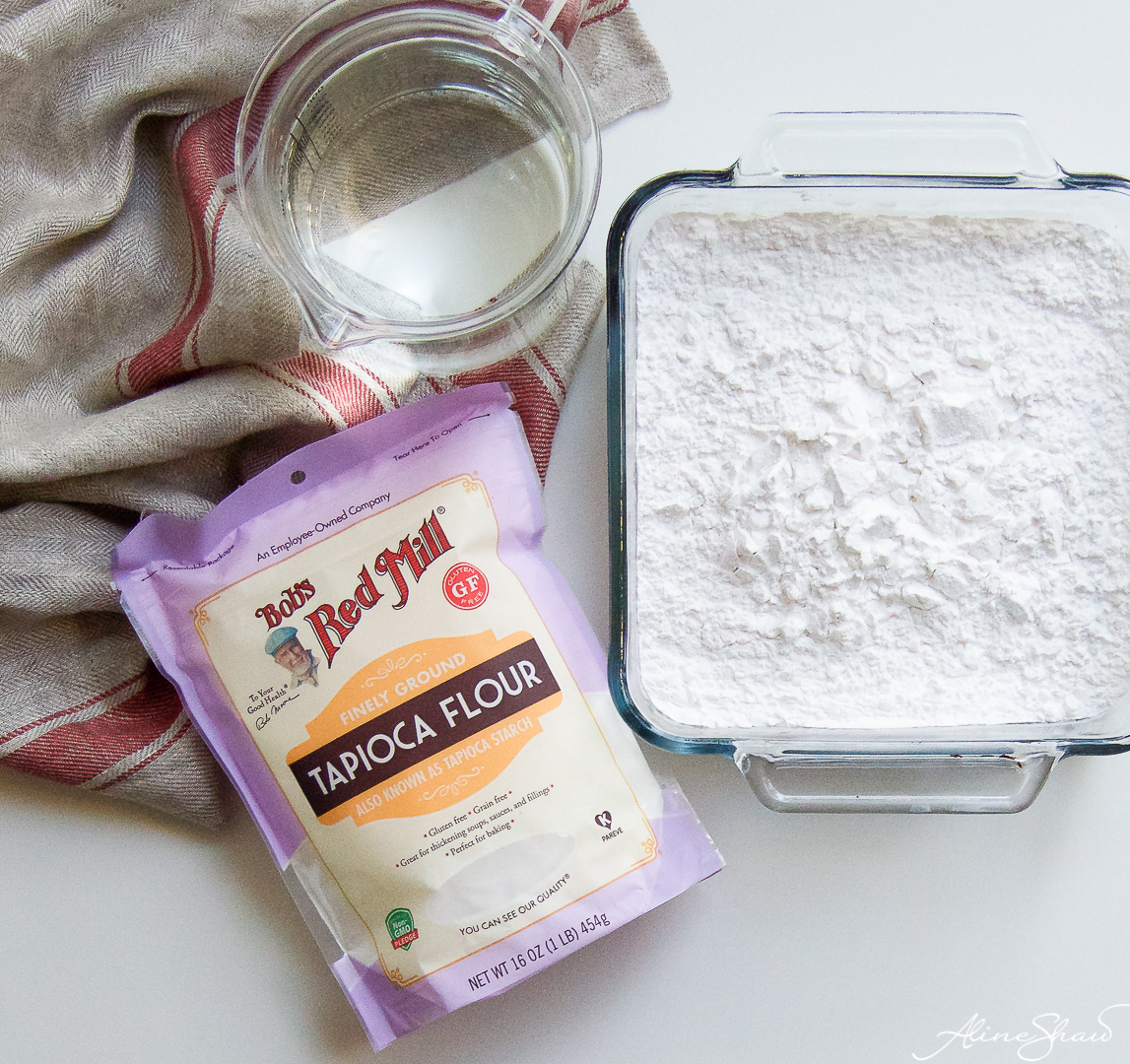
Get some Bob’s Redmill Tapioca Flour and place it on a dish. Make sure the dish is deep enough to accommodate all the flour and the water.
Cover the whole thing with water. You’ll see these fun bubbles as the the tapioca starch starts to absorb the water!
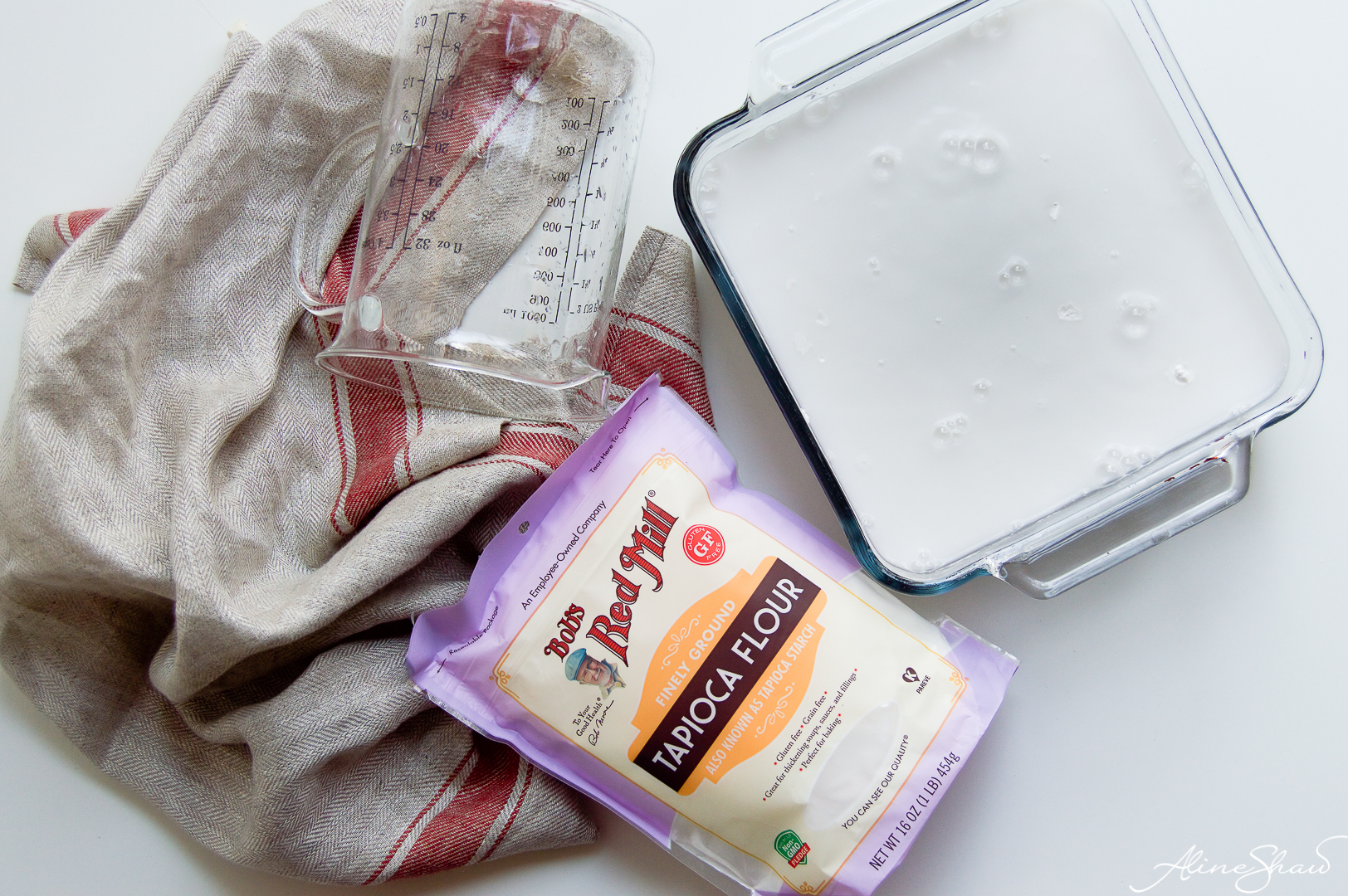
Wait about an hour, then slowly pour all the water out. You’ll notice the starch now sort of looks like a gummy mess, and you’re probably wondering WTH did I just do!! Stay with me, amigo!
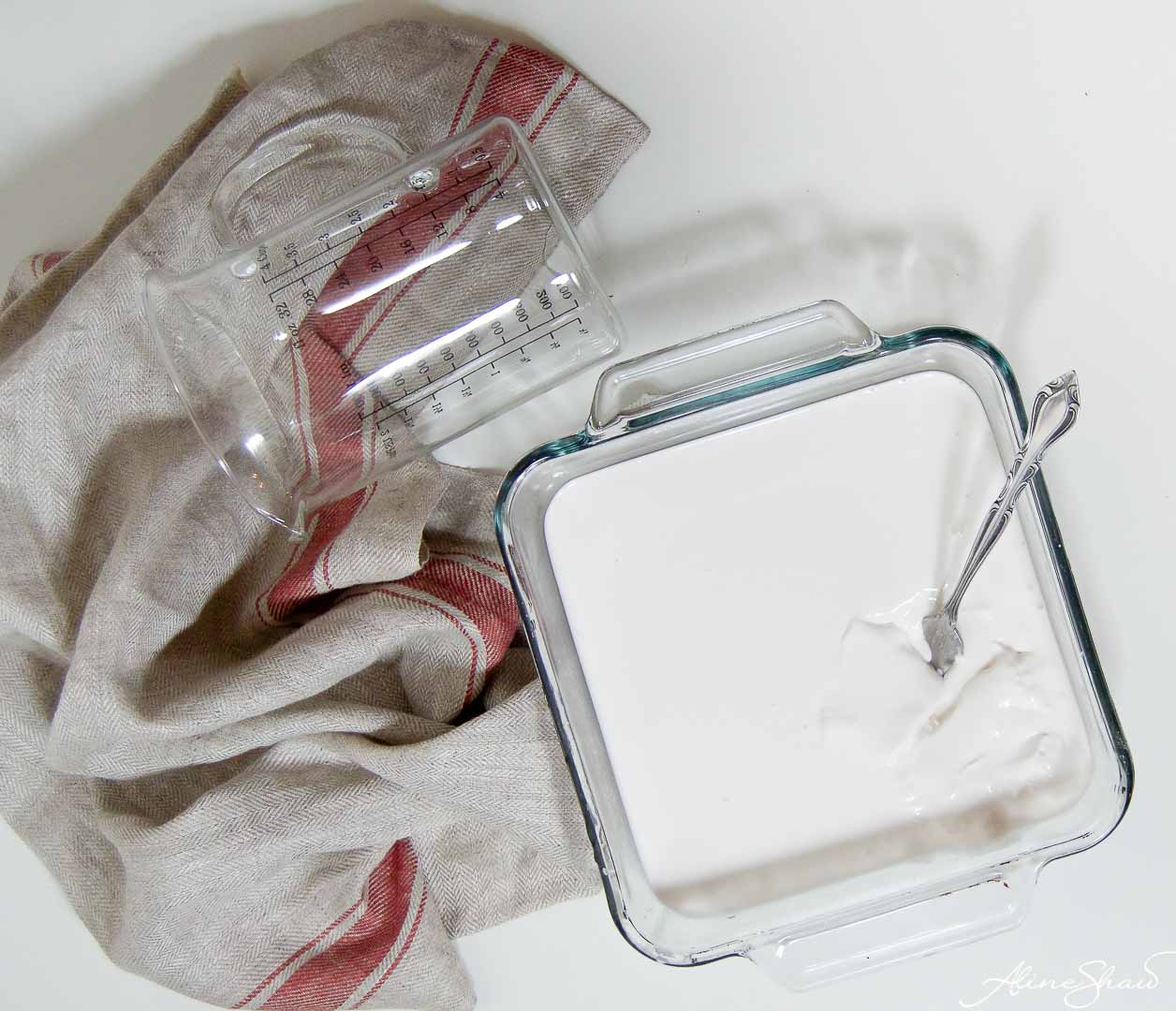
That gummy mess is almost your tapioca gum, but not quite yet. There is still too much water in there, so we need to pat it dry.
So, get some paper towels, or a clean dish towel, and press gently against the gum. I do this a few times…
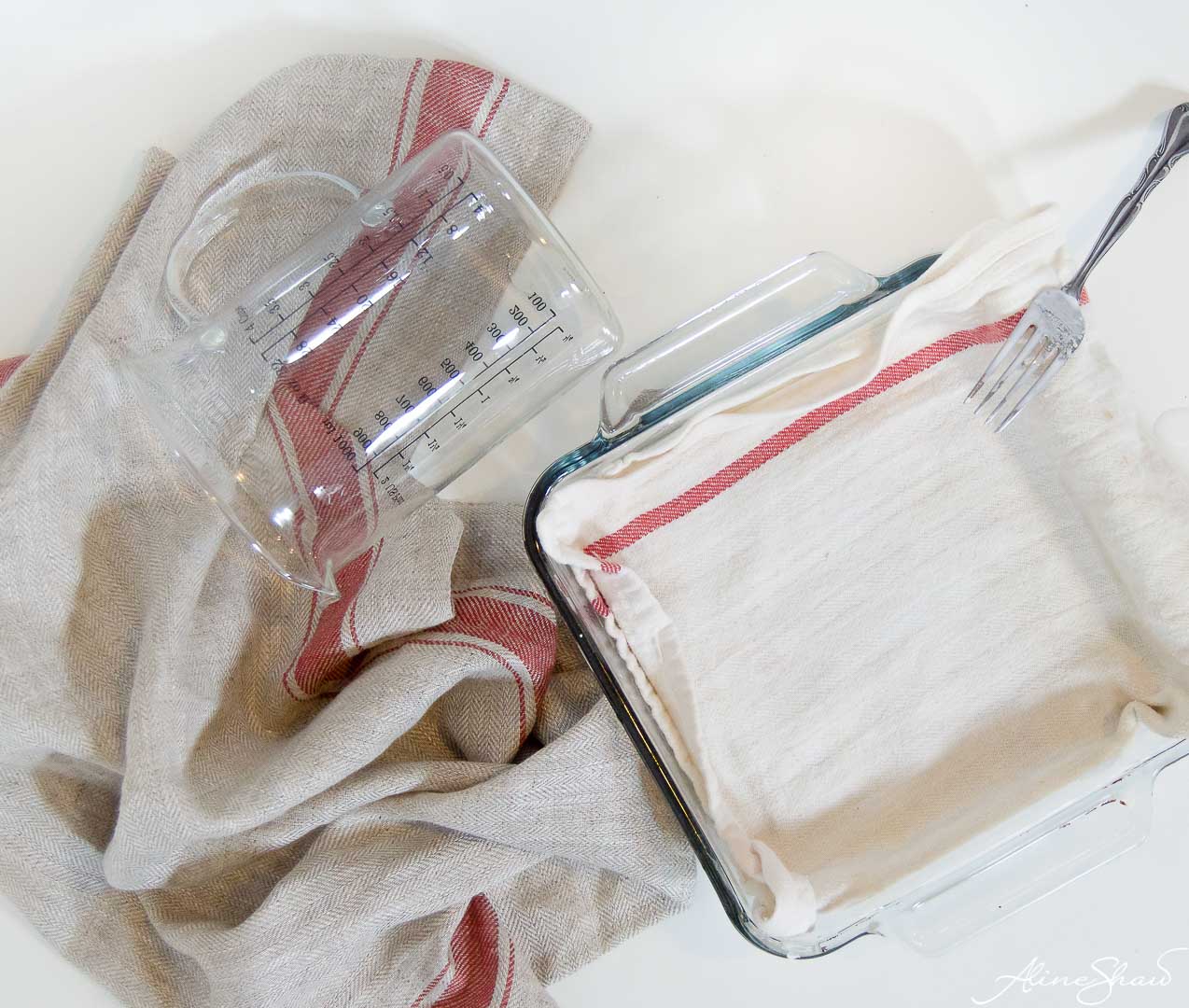
…until the gum looks like this. Sorta like a chalk, and you can perforate it with a fork, and break it into chunks.
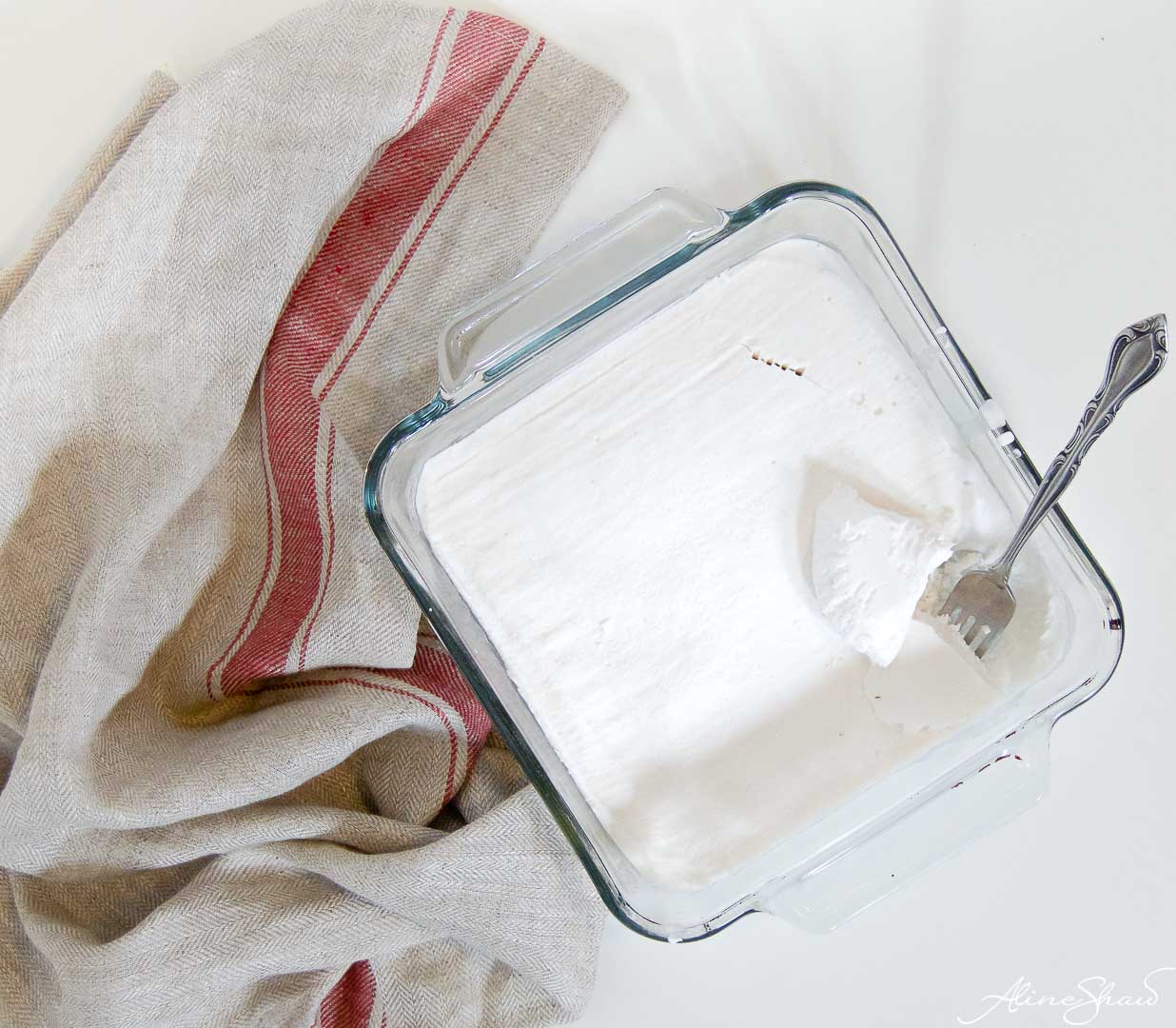
Then, using your hands, break these large chunks into a sandy mixture, like this. This part is fun! And you can totally have your kids do it too!
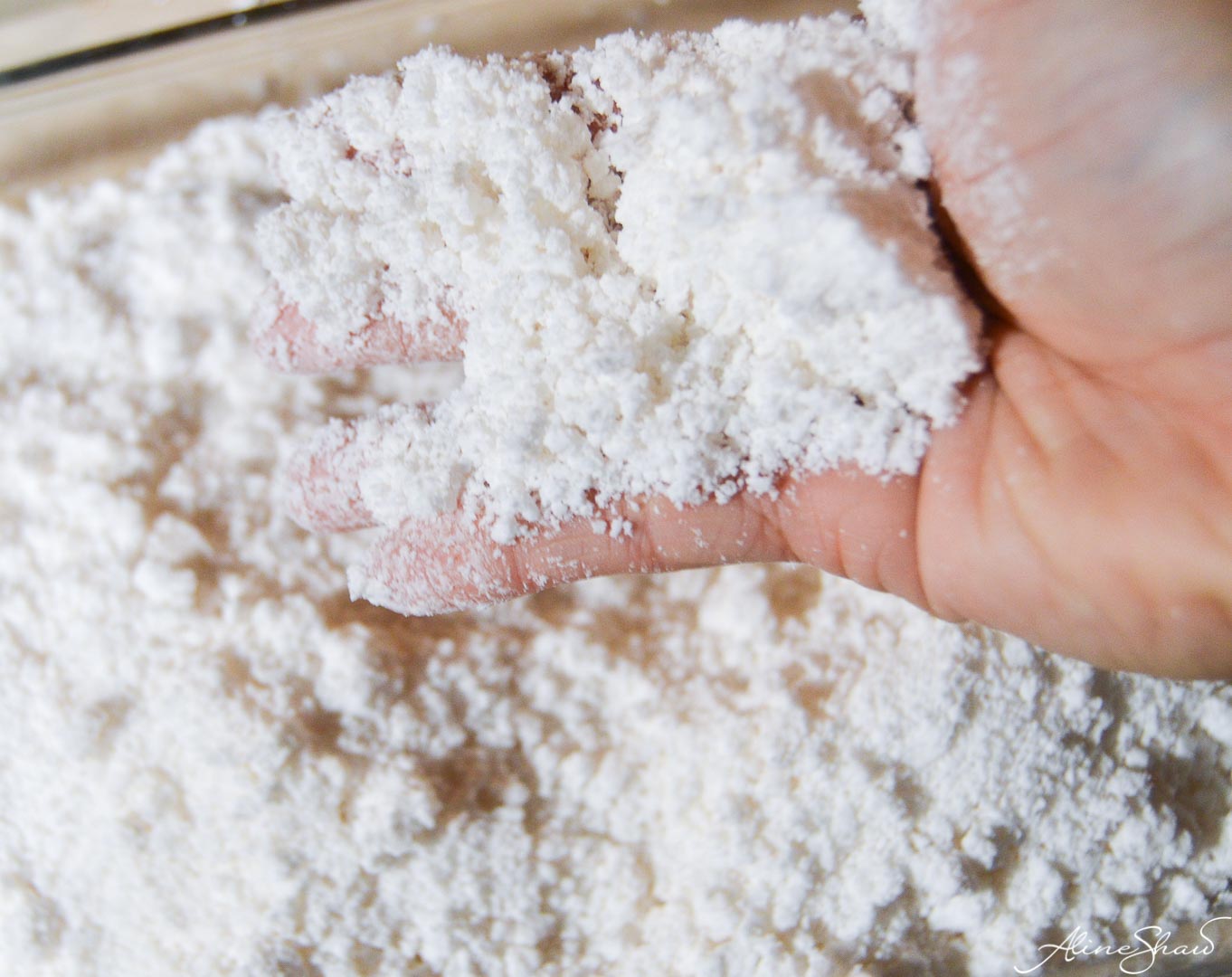
Finally, pass that sandy mixture through a strainer, and ta-da! You just made tapioca gum!
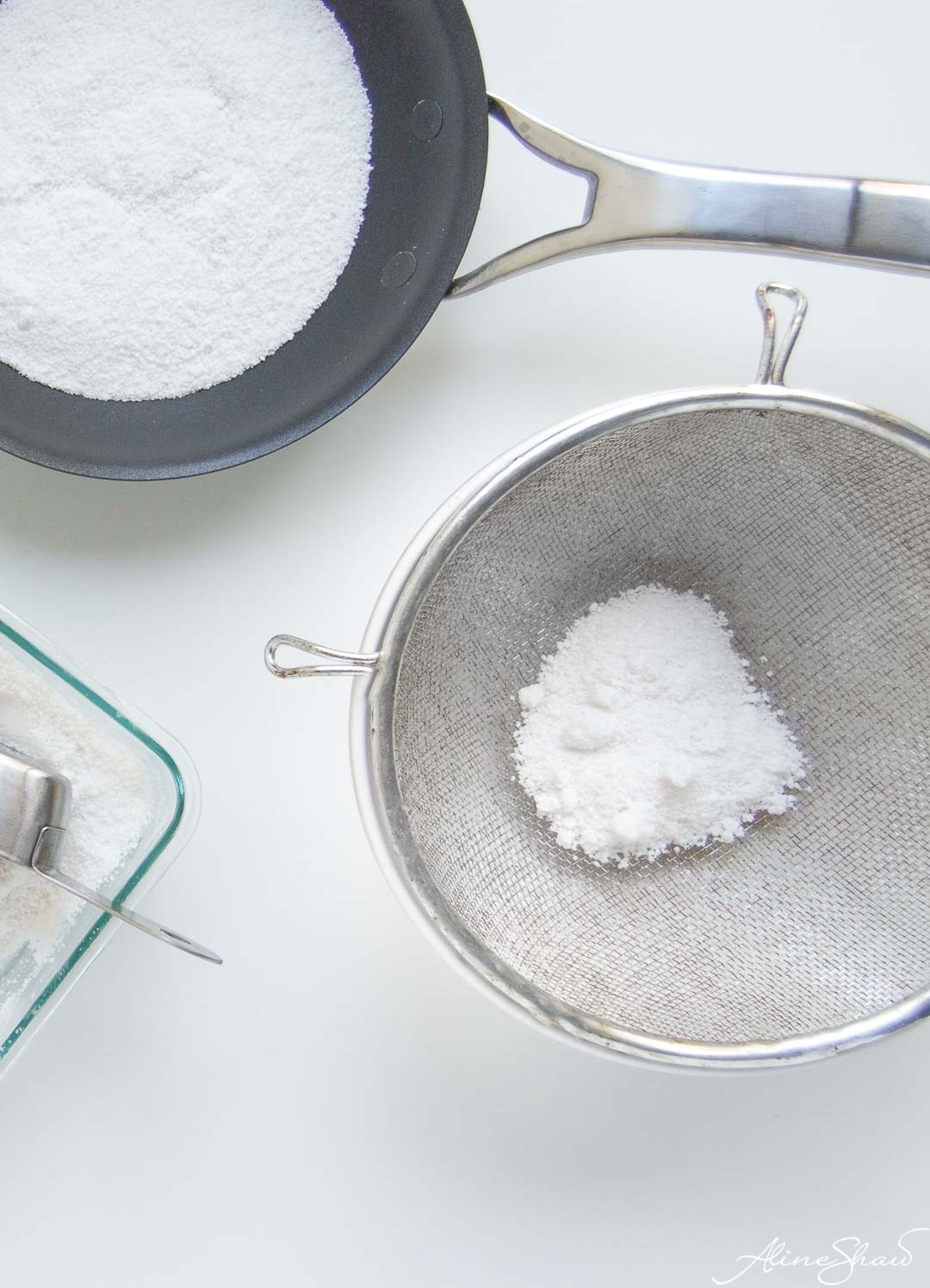
Store your tapioca gum in a zippy bag, or in a glass container. It should last you 5-10 days in the fridge.
Then, when you want to make Brazilian Tapioca, scoop 1/3 of a cup of the gum into a small nonstick pan and season it with a pinch of salt.
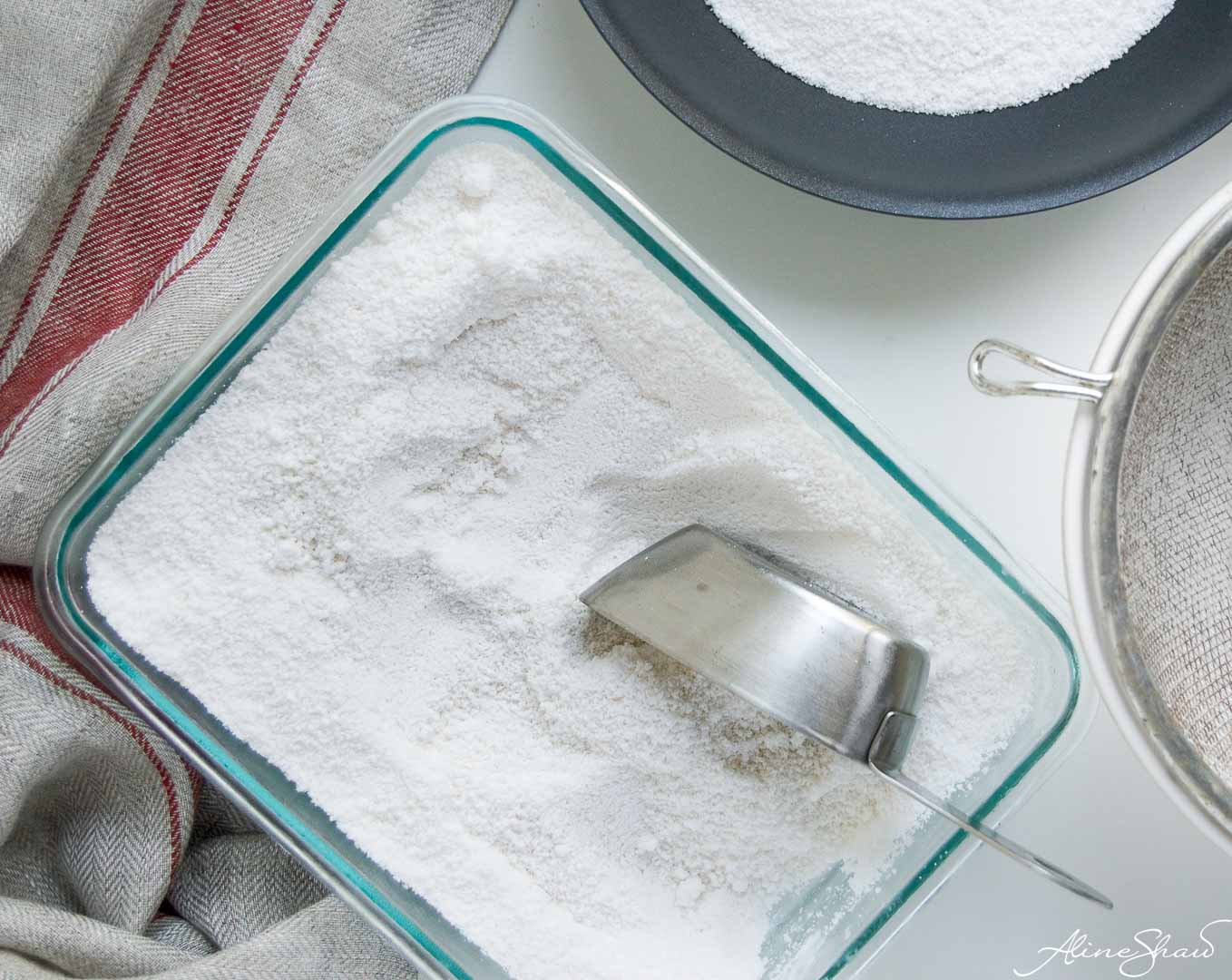
And cook over medium to high heat, about 2-ish minutes.
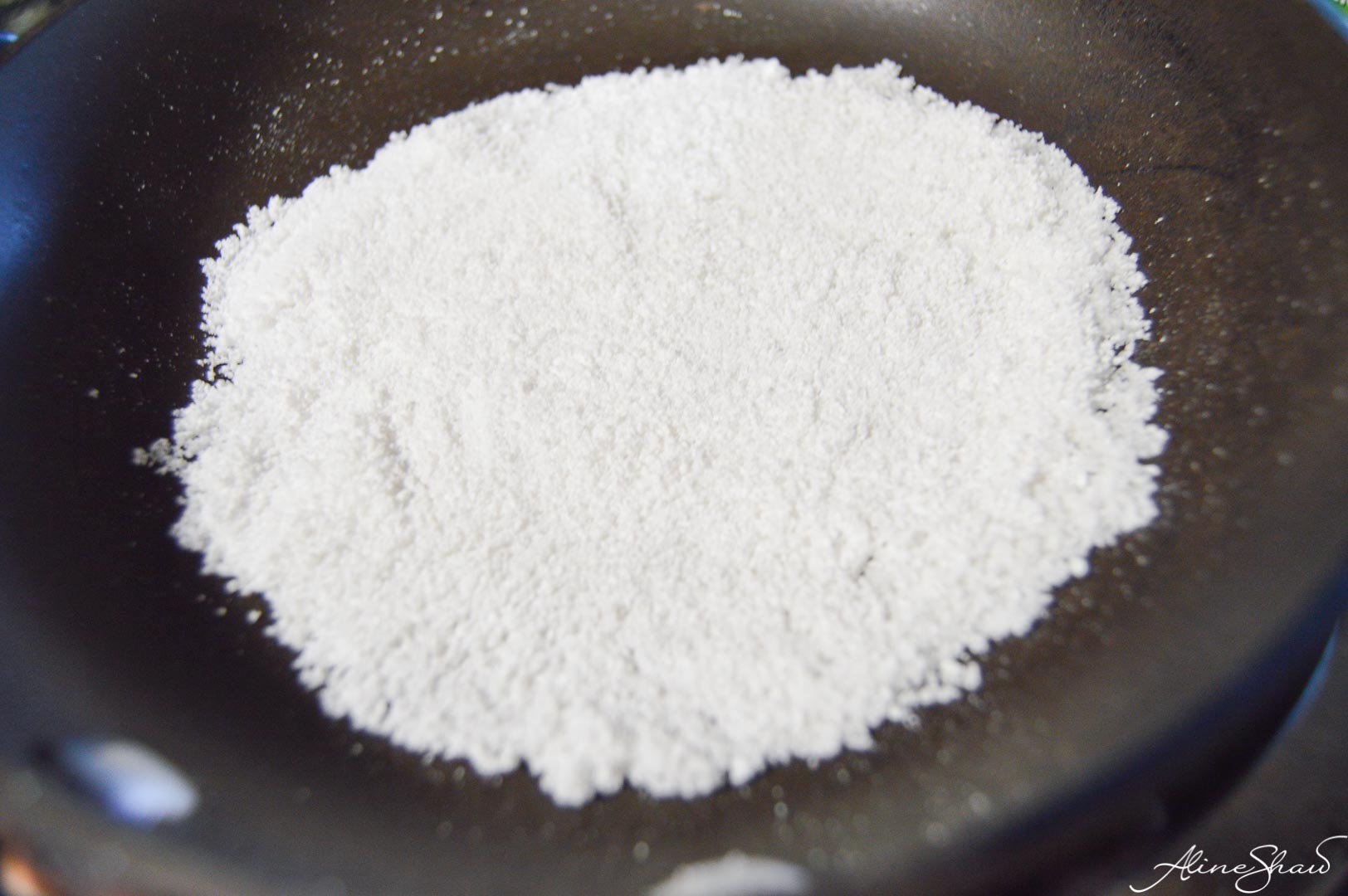
You’ll notice the gum will stick together, and when it does it’s ready to be flipped. Then just cook one more minute and you’re all done.
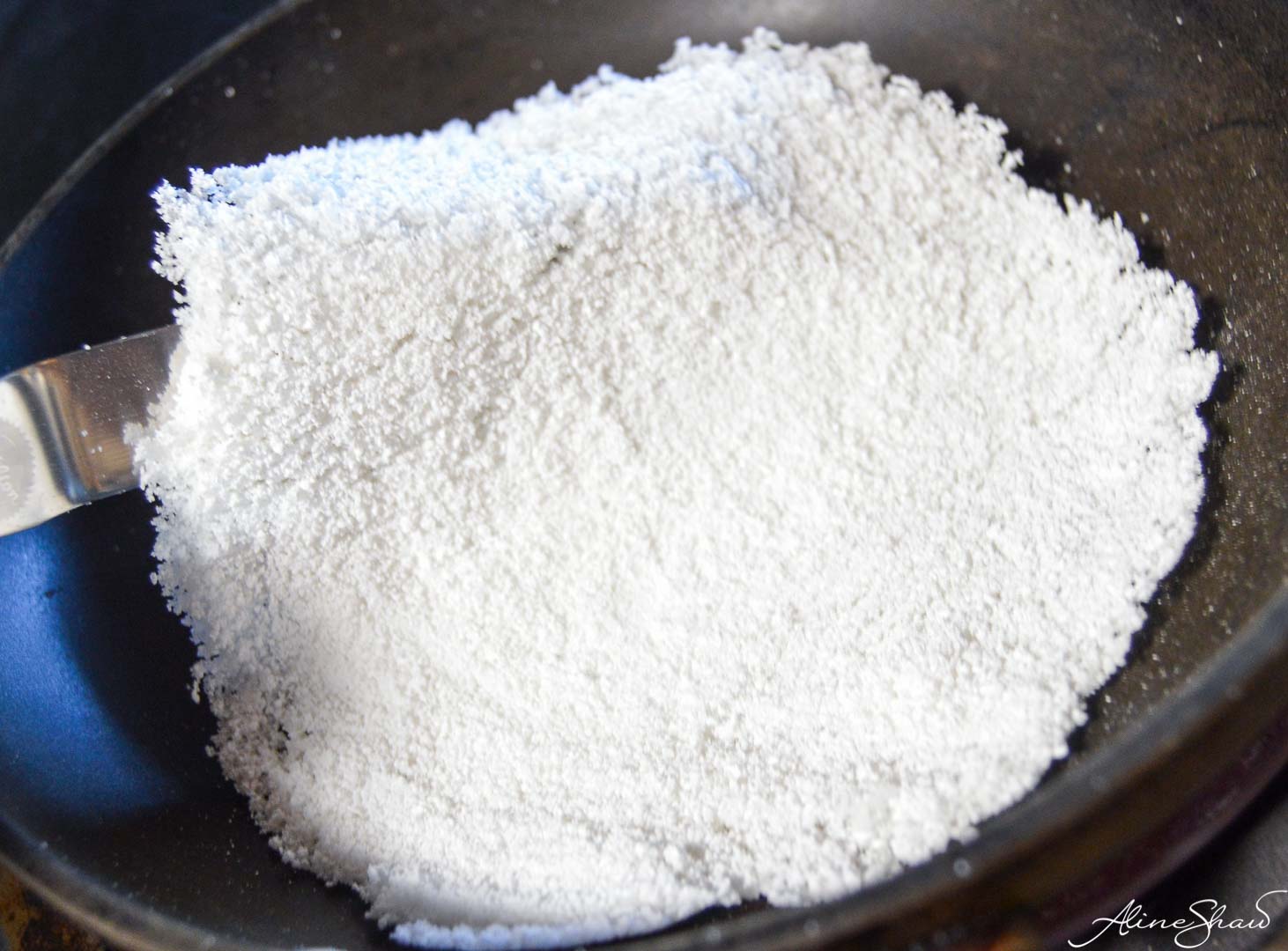
Brazilian Tapiocas | Great for breakfast, snacks, lunch and dinner!
Just add your favorite herbs, and drizzle with olive oil to keep it vegan.
Or spread some salted butter, or jam, or peanut butter, or seriously ANYTHING!
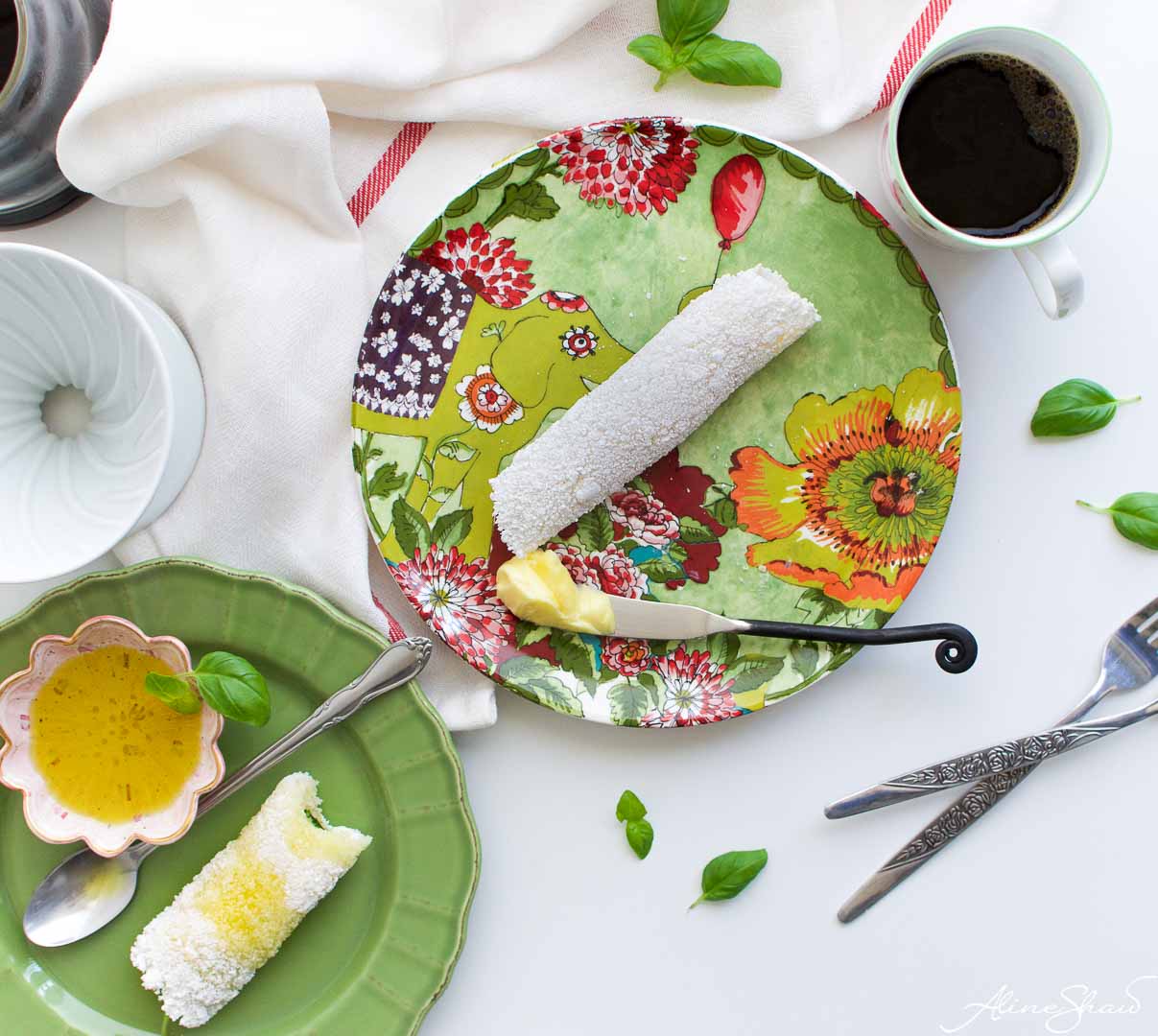
Make a batch and let me know how you like it!
Bom Apetite!!
Beijinhos xoxo
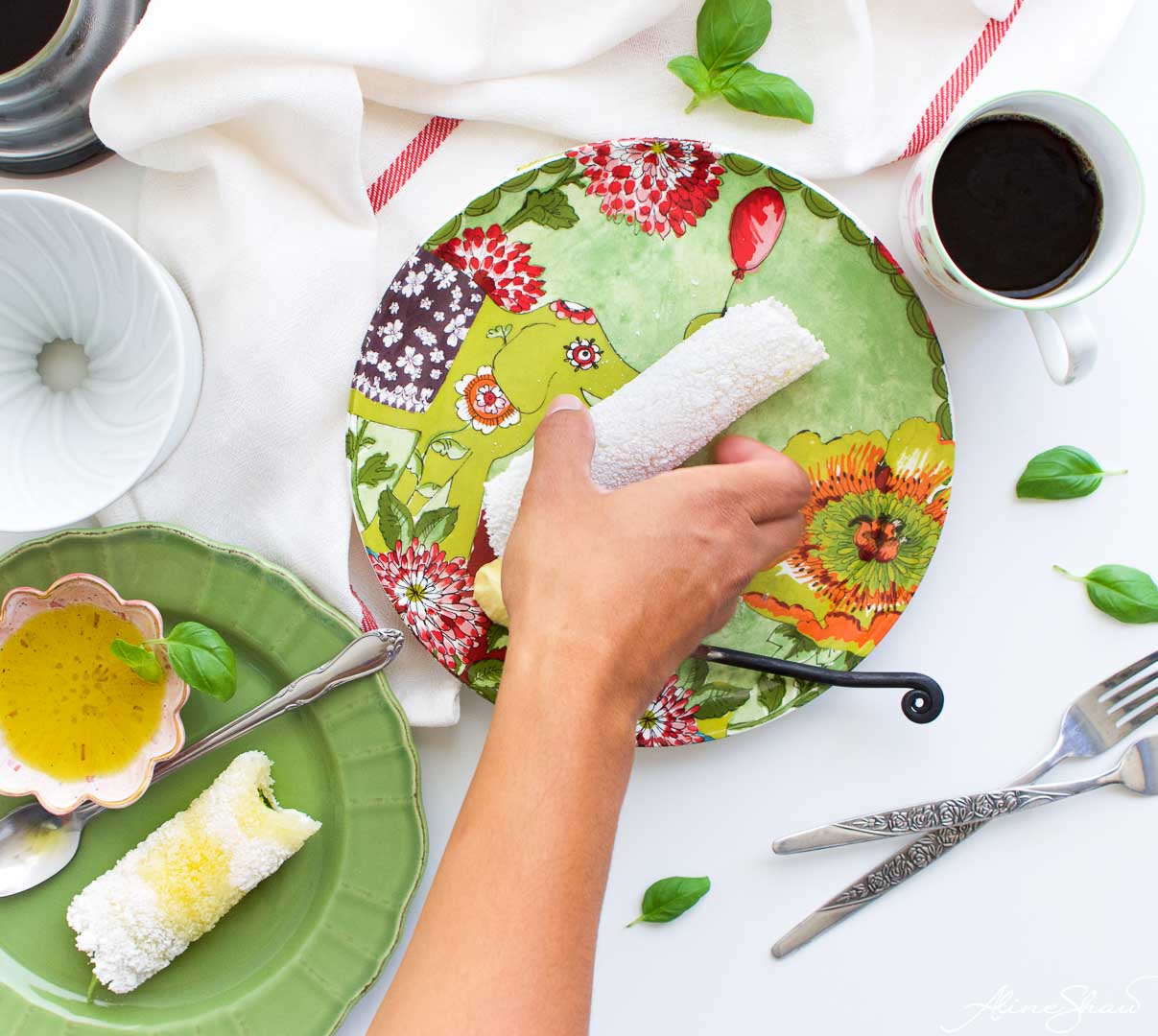
Other Brazilian Snacks you’ll love:
A very special obrigada to my Bob’s Red Mill familia for supplying me with some of their delicious products that I love for this recipe! All opinions are my own.
Brazilian Tapioca
Ingredients
- 1 lb of Bob’s Redmill Tapioca Flour
- 4 cups of cold water
- Pinch of salt
Instructions
For the Tapioca Gum:
- Get some Bob's Redmill Tapioca Flour and place it on a dish deep enough to accommodate all the flour plus the water.
- Cover the tapioca with water. The water will bubble as the the tapioca starch starts to absorb it. Wait an hour, or up to overnight, then slowly pour the water out. You'll notice the starch now looks gummy, so we need to dry it.
- Using paper towels, or a clean dish towel, press gently against the gummy paste. I do this a few times, exchanging the paper towels for drier ones.
- When the gum looks chalky, and can be perforated with a fork, break it into chunks.
- Using your hands, break these chunks into a sandy mixture.
- Finally, pass that sandy mixture through a strainer to obtain a finer texture.
- Store the tapioca gum in a zippy bag, or in a glass container. It should last you 5-10 days in the fridge.
How to cook:
- Scoop 1/3 of a cup of the gum into a small nonstick pan and season it with a pinch of salt.
- Cook over medium to high heat, about 2-ish minutes.
- When the gum sticks together it’s ready to be flipped. Flip, then cook one more minute on the other side and you’re all done.
- Just add your favorite herbs, and drizzle with olive oil to keep it vegan. Or spread some salted butter, or jam, or peanut butter, or seriously ANYTHING!


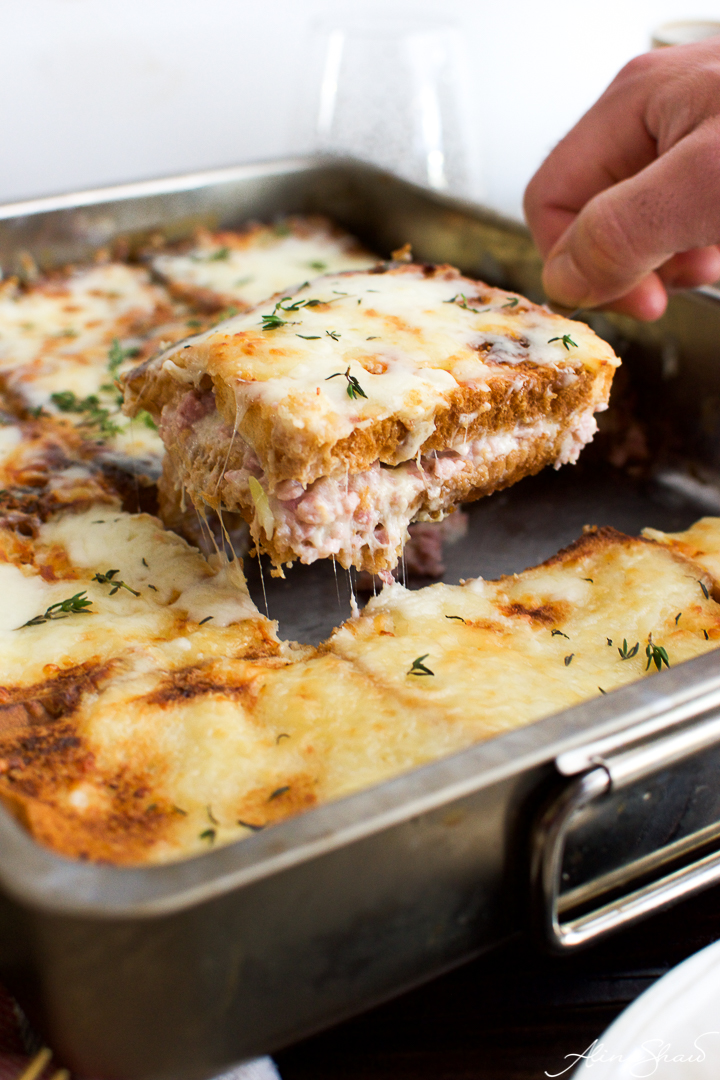
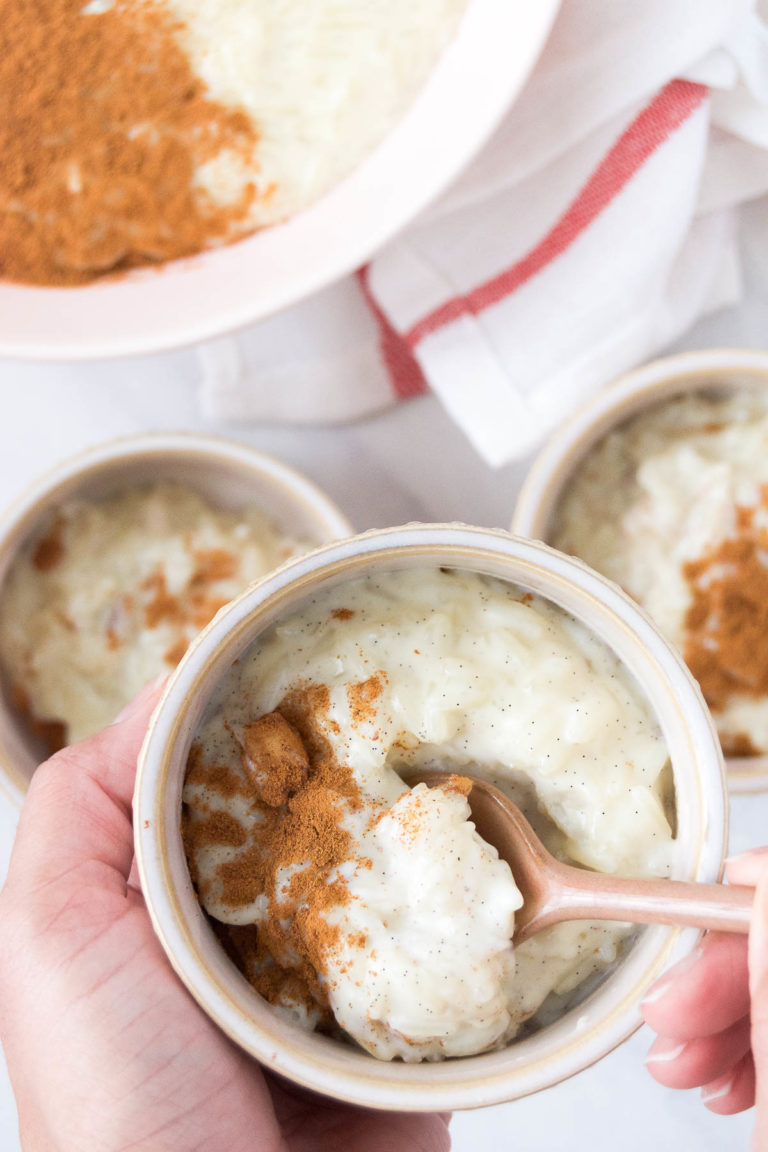
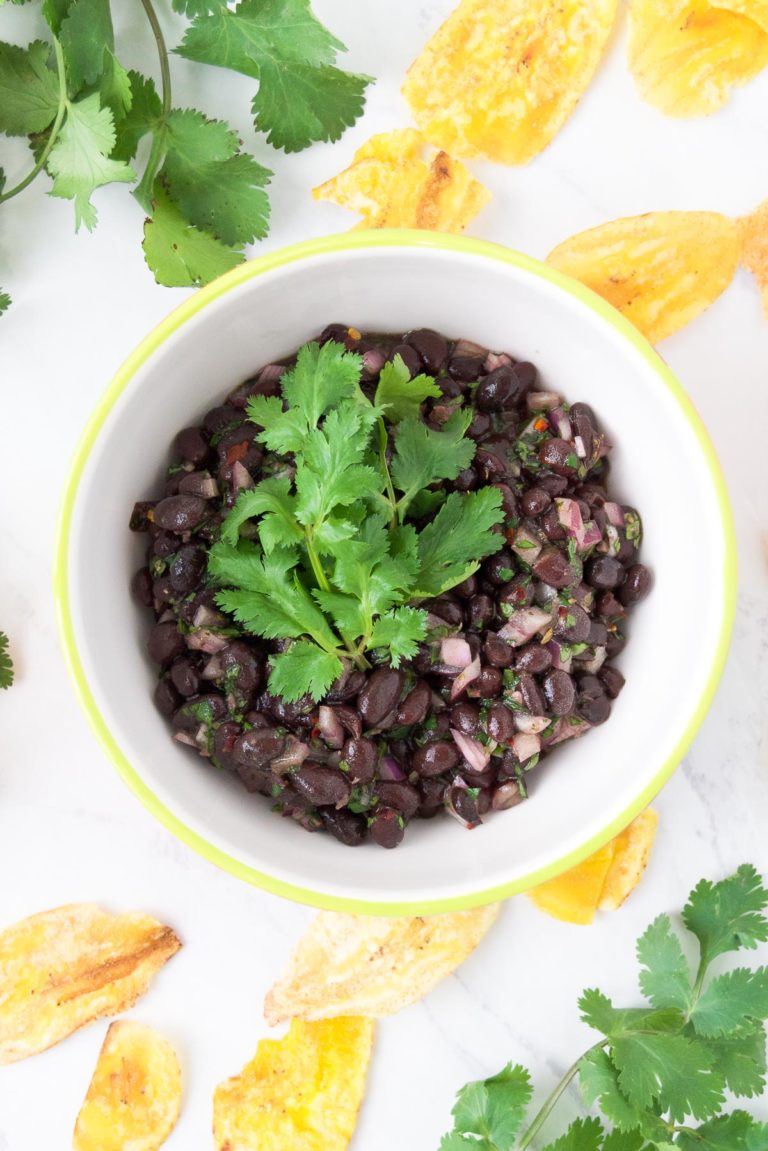
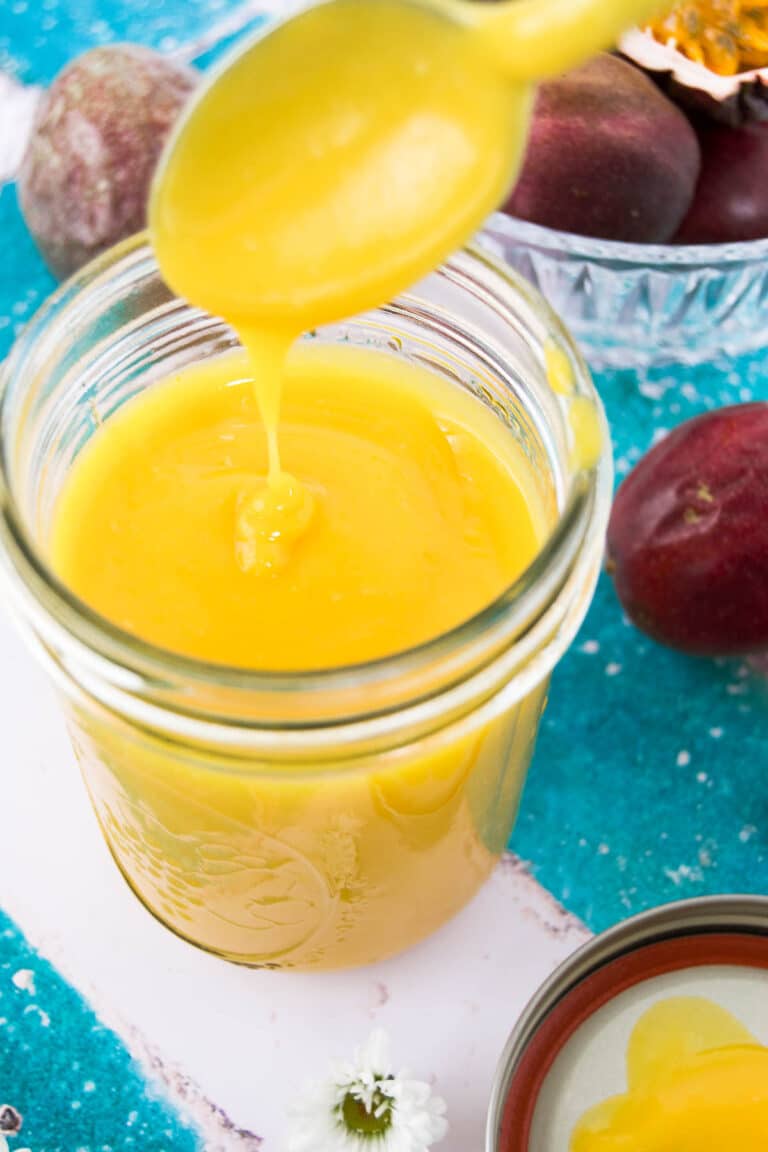
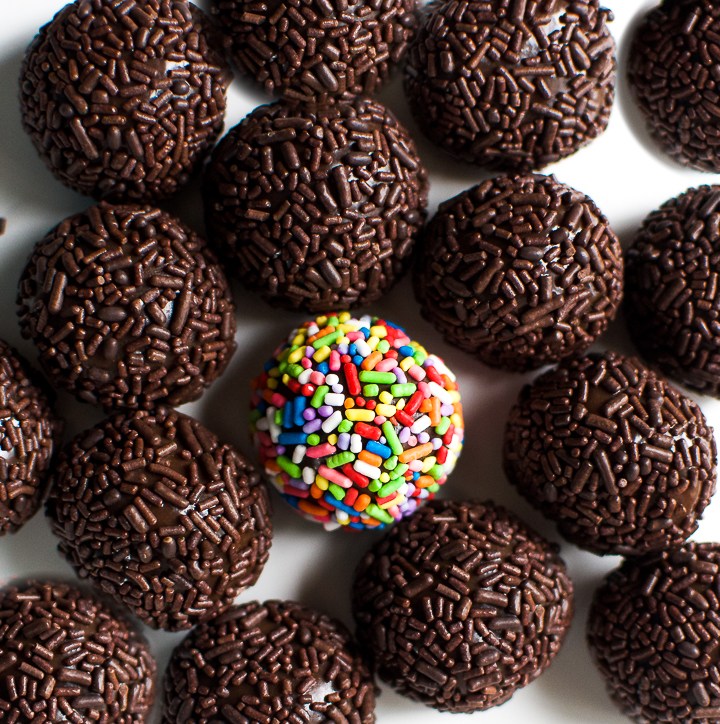
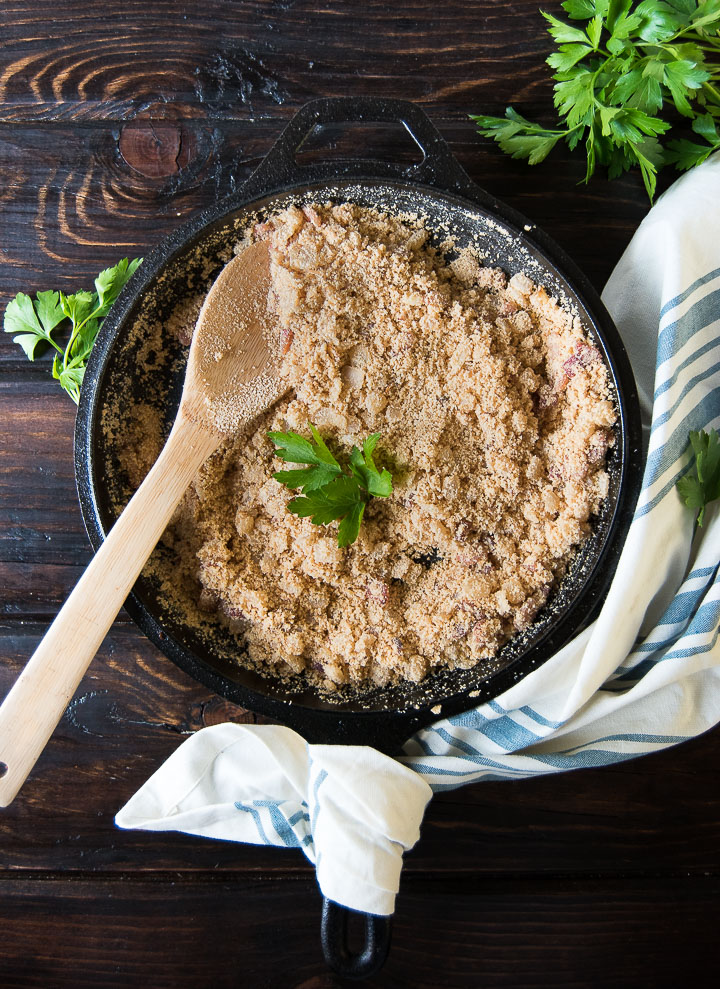


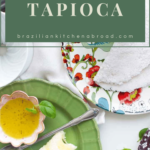
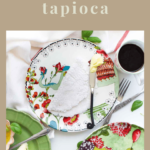
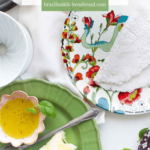

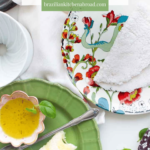
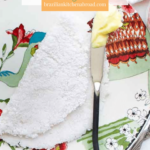
My mom is from Ceara too, so I’ve been introduced to this wonder when I was a child. I absolutely love tapioca and that is what I eat for breakfast every single weekend. It is like a ritual. I sit on my couch, enjoy the sunlight that comes through my window, savor on some tapioca with butter and a cup of coffee. Love it!
Ahhhh Ceara is amaaaaazing!!! And so are tapiocas! xx
Love not only the step-by-step instructions but also the cultural context you provided. This is great!
Thank you, Jazz!! So glad you like all the extra info! Beijinhos xx
I definitely want to try these! You captured such great photos in this post!
Yasss, do try’em, girl!! I’m glad you like the photos, but I’m sure you’ll like the tapiocas even better when you try them 😉 xoxox
You inspired me to make some this weekend!
I grew up eating these in Belém, Pará when I lived there.
Now in the states, I don’t indulge em quitutes like those.
Xoxo
Oi Mariette! Happy to have you here and EVEN HAPPIER to have inspired you to make such an important treat in our culture!! Good news is, these are SUPER easy to make, and you’ll have a nice batch to last you all week, so you’ll be indulging in this quitute all week long!!! Let me know how it goes! Beijinhos xx
Oh I am going to get some Bob’s flour tomorrow. I got electric crepe maker for Christmas would this recipe cook well on it? Thank you
Hey Pym,
I haven’t personally tried using an electric crepe maker, but I don’t see why it wouldn’t work!
Good luck and enjoy!! Beijinhos xx
I have no more heartburn thanks to tapioca
That’s so cool, Eloi! I didn’t know tapioca was good for heartburn – that’s awesome!!
Just saw Felipe Toledo racing about this, got to try it looks great , your article Was very clear not like some instructions, made me want to try. Thanks
Hey, Ron! Thanks for stopping by! Yes, a lot of athletes love their tapiocas, so I’m not surprised hehe I’m glad you’re curious to try – I love them sooooo much and they’re a part of my daily routine. Hope you make them and enjoy them as well!! Keep me posted! Beijos xx
Can’t wait to try this recipe! I am an Amercian of European descent, but I love exploring other cultures, languages, and food. Stumbled upon this website by accident, but I’m excited to see what other recipes and things I can learn here.
Hey, Maria!! Welcome!! It’s great to have you here!! 🙂 I’m excited for you to learn new stuff and I hope to be able to help however I can. Tapiocas are a great start, they’re easy, delicious and so fun! Keep me posted and let me know how it went! Btw – You just reminded me I need to get my weekly batch done today! haha Keep in touch!
Hi just back from Brazil where my friend fried tapioca fluor to delicious ”crêpes” as it is – without any soaking or liquids added. Why is that ”not recommended”?
Because your friend already had the hydrated “goma” – thats how they sell it in Brazil. Outside of Brazil, we can usually just get the starch which we need to hydrate to make the “goma” we can fry into crepes. Hope this helps 🙂